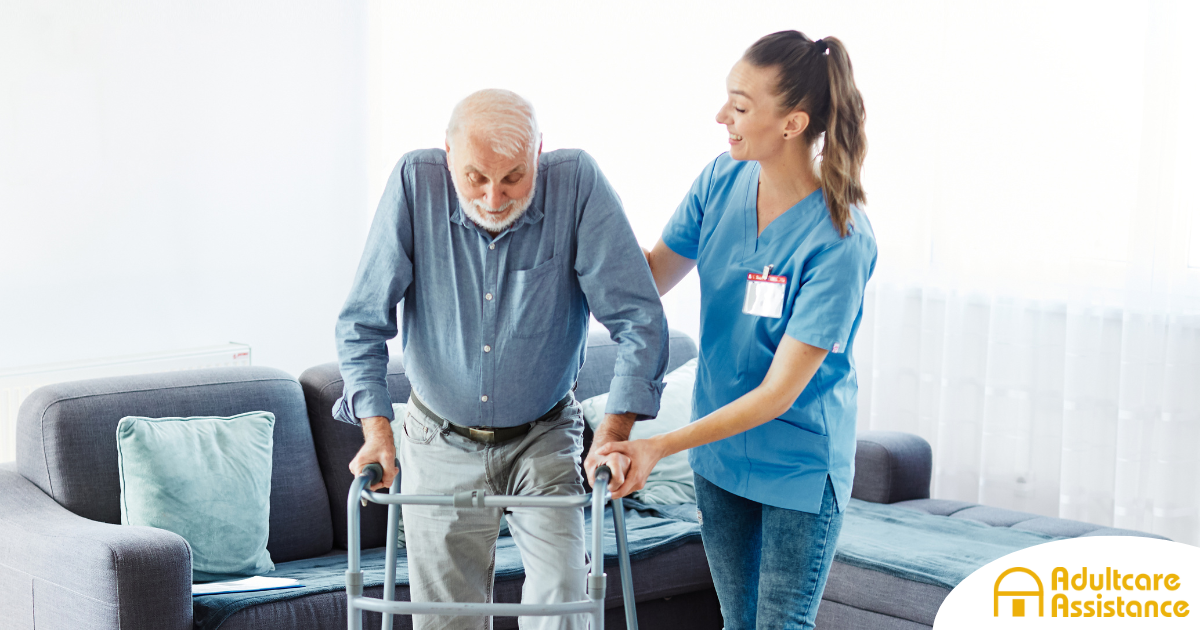As people in Phoenix age, recovering at home after a hospitalization can be more challenging. In addition to being older, there is often a direct correlation between recovery care quality and the likelihood of hospital readmission. Older patients and loved ones must understand the root causes of hospital readmissions and develop effective discharge care strategies to prevent them. The remainder of this article will explore the importance of post-hospitalization senior home care and practical recovery care tips every family should know.
Why Do Seniors Get Readmitted to the Hospital?
Individuals aged 65+ often find themselves back at the hospital soon after being discharged for these reasons:
Medication Mismanagement
One of the leading causes of hospital readmissions among seniors is improper medication management. Issues like forgetting to take medications, incorrect dosage, or drug interactions can worsen existing health conditions and facilitate the need for further medical intervention.
Improper Discharge Care Coordination
The transition from hospital to home can be challenging, especially when effective care coordination is lacking. Poor communication between healthcare providers, inadequate follow-up appointments, or incomplete discharge instructions can contribute to hospital readmissions.
Accidental Falls
Seniors are at a higher risk of falling due to frailty, mobility issues, and cognitive impairment. Accidental falls can cause injuries such as fractures or head trauma, which may require hospitalization.
Ineffective Chronic Illness Management
Older adults often have multiple chronic conditions that require proper management. Failure to effectively control conditions like diabetes, heart disease, or respiratory ailments can lead to complications and subsequent hospital readmissions.
Lack of Senior Home Care Support
Lack of appropriate home care support can be a significant factor in hospital readmissions. Seniors who do not have access to assistance with activities of daily living (ADLs), such as bathing, dressing, or meal preparation, may struggle while recovering at home.
How to Help Seniors Avoid Hospital Readmissions
As a family caregiver, here’s how to provide your aging loved one with the recovery care they deserve:
Medication Management
Help your loved one compile a comprehensive medication list that includes dosage instructions, potential side effects, and any drug interactions. Use a pill organizer or a medication reminder app to help them stay on track with their medications. Regularly review medications with healthcare providers to ensure their effectiveness and identify any possible adjustments.
Coordinate Post-discharge Care
Effective care coordination is crucial for a smooth transition from hospital to home. Actively participate in your loved one’s discharge planning by asking questions about medications, follow-up appointments, and any necessary lifestyle changes. Request a detailed discharge summary from the hospital and share it with the primary care physician, other healthcare team members, and family members involved in your loved one’s care.
Prioritize Accident Prevention
Implementing fall prevention strategies at home can significantly reduce the risk of injuries. Consider home modifications such as installing grab bars in bathrooms, removing trip hazards, improving lighting, and ensuring assistive devices are properly utilized. Regular exercise programs, including balance and strength training, can also help improve your loved one’s stability and prevent falls.
Properly Manage Chronic Illnesses
Help your loved one manage chronic illnesses by adhering to a medication schedule, following dietary guidelines, monitoring symptoms, and attending regular checkups. Educate them about the importance of maintaining a healthy lifestyle, managing stress, and seeking timely medical attention for any changes in their health.
Seek Professional Assistance
Notably when you’re busy or live far away, consider enlisting the help of a professional caregiver to assist with your loved one’s recovery care. Home care aides from a reputable provider can ensure that seniors receive the necessary support at home, including assistance with ADLs. This additional support can help older adults recover more successfully and prevent hospital readmissions.
Final Thoughts on Preventing Hospital Readmissions
Hospital readmissions can be avoided with careful attention to transitional care strategies. By addressing medication management, care coordination, fall prevention, chronic illness management, and home care support, seniors and their families can significantly reduce the risk of readmission. Proactive steps taken during the discharge planning process and ongoing home care can help seniors maintain their health, independence, and quality of life.
How to Choose the Best Senior Home Care Provider in Phoenix
Once you’ve decided to hire a professional caregiver, choosing the right home care provider is crucial for ensuring a safe and comfortable recovery process. Here’s how to make a better-informed decision when your loved one’s health and well-being weigh in the balance:
Determine Their Needs
Start by assessing the specific needs of your aging loved one. Consider the level of assistance required with ADLs, such as bathing, dressing, meal preparation, and medication management. Additionally, evaluate any specialized care needs related to chronic conditions or post-hospitalization recovery. Clearly understanding the required services will help you narrow down your search.
Do Your Homework
Research potential home care providers thoroughly. Look for agencies that are licensed, bonded, and insured. Check if they have any professional accreditations or certifications, such as the Joint Commission’s Home Care Accreditation. Verify their reputation by reading online reviews and seeking recommendations from trusted sources, including former employees and clients.
Check Staff Qualifications and Training
Consider the qualifications and training of the home care provider’s staff. Ensure they have certified and experienced caregivers trained in the specific care needs of older adults. Ask about their screening processes, background checks, and ongoing training programs to ensure the highest level of care.
Ensure Compatibility and Communication
These factors are essential for ensuring a successful caregiver-patient relationship. Interview potential caregivers to assess their personality, communication style, and compatibility with your loved one. Open and effective communication between the caregiver, patient, and family caregivers is essential for providing the best care and addressing any concerns or changes in the patient’s condition.
Understand Costs and Payment Options
Discuss the costs and payment options upfront to ensure transparency and avoid any surprises. Ask about any hidden fees, minimum hours of service, and payment methods accepted. If your loved one has long-term care insurance or Medicare, verify if the home care provider is eligible for reimbursement. Understanding the financial aspect will help you plan and make an informed decision.
Seek Client References
Ask the home care provider for client references or testimonials. Reach out to these references to gain insight into their experiences with the agency. Inquire about the quality of care, reliability, responsiveness, and overall satisfaction. Speaking with current or former clients can provide valuable information to help you make a well-informed decision.
In conclusion, choosing the best senior home care provider for your aging loved one requires careful consideration and research. Taking these steps will help ensure they receive the transitional care they deserve, giving you one less thing to worry about!
Your Family-Trusted Senior Home Care Provider in Phoenix
Helping aging loved ones avoid hospital readmissions can be challenging with everything else on your plate. Put your mind at ease by contacting Adultcare Assistance Homecare in Phoenix. As a fully licensed and insured home care provider, our highly trained professionals are experts at delivering the quality recovery care your loved one deserves. While serving as an extended family in the home, our caregivers can perform various duties, including Alzheimer’s Disease Care, Companion Care, Elderly Fall Prevention, Bathing and grooming, Senior Activities, 24 24-hour live-in Assistance, Hospital to Home, Senior Transportation, Respite Care, Hospital Sitter, Medication Reminders, and Light Housekeeping.
While assisting clients in Phoenix, Tucson, and Sun City, our agency’s focus is maintaining your loved one’s quality of life, along with their dignity, self-esteem, and independence. For your added convenience, all our in-home services can be individually personalized into an affordable package when and where you need them! Please visit Adultcare Assistance Homecare online now to learn more about our transitional care services or schedule a FREE consultation for a loved one in our service area.


